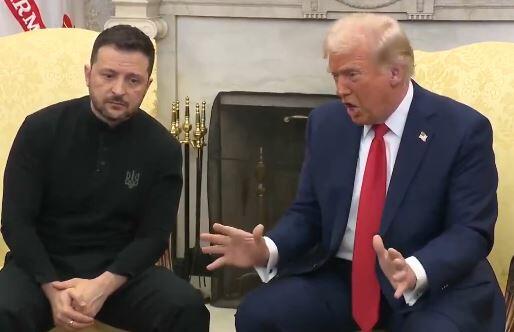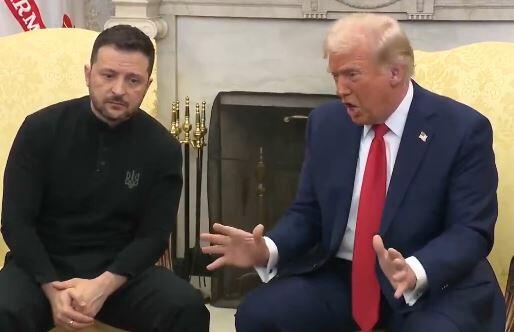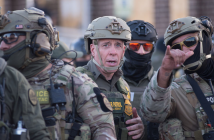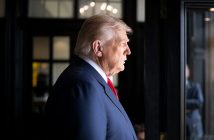Update(1858ET): There’s been contradictory reports all day, and at one point in the afternoon a firm Trump denial, but Monday evening Bloomberg is reporting that the US has paused all military aid to Ukraine amid the tit-for-tat open feuding with Zelensky.
“President Donald Trump ordered a pause to all military aid to Ukraine, turning up the heat on Volodymyr Zelenskiy just days after an Oval Office blowup with the Ukrainian president left the support of his country’s most important ally in doubt,” the publication writes in a breaking story.
“The US is pausing all current military aid to Ukraine until Trump determines the country’s leaders demonstrate a good-faith commitment to peace, according to a senior Defense Department official, who asked not to be identified discussing private deliberations,” Bloomberg adds.
For now this is only the usual anonymous official, and while it could be premature (as meetings “mulling” a stoppage take place), it sure looks like that’s where things are headed.
“The official said all US military equipment not currently in Ukraine would be paused, including weapons in transit on aircraft and ships or waiting in transit areas in Poland,” the report notes further.
If so, this marks a monumental shift in Washington policy over the last three years of war in Eastern Europe.
* * *
Update (1455ET): And in the latest turn of events… the Trump administration has allegedly halted the financing of new weapons sales to Ukraine, and may freeze weapons shipments from US stockpiles, the Wall Street Journal reports, citing current and former US officials.
Trump, however, has denied this…
While the financing was halted in recent weeks as part of the Trump administration’s freeze on foreign aid, however the move to potentially shut down arms transfers comes after last week’s contentious meeting between President Trump, VP JD Vance, and Ukrainian President Volodymyr Zelensky at the White House.
Ukraine is able to get weapons from the U.S. through several means, including Foreign Military Financing, which provides loans and grants for nations to buy weapons from U.S. defense companies, and the Ukraine Security Assistance Initiative, which allows the Pentagon to buy weapons for Kyiv but is currently out of funds. However, presidential drawdown authority, which allows the Defense Department to pull directly from its own stockpiles, has been the most significant tool for arming Ukraine.
On Monday, the White House is holding a meeting to consider suspending shipments using the drawdown authority, a congressional aide and a second person familiar with the matter said. -WSJ
That said, the shutdown of financing new weapons sales began before Friday’s contentious meeting – during which Ukraine and the US were going to sign a framework agreement for a mineral rights deal that would have equated to de-facto boots on the ground, which would have dissuaded Russia from attacking (since the US would have to respond).
Meanwhile, Ukraine has just 90 days of weapons and other supplies to keep fighting Russia at its current pace, according to the report, which suggests that European allies could ‘make up for some of the potential shortfall.’
If the U.S. shutdown persists, Ukraine would lose its supply of some sophisticated weapons, including advanced air-defense systems, surface-to-surface ballistic missiles, navigation systems and long-range rocket artillery. The U.S. is the sole producer of some systems, including Army Tactical Missile Systems or ATACMs, and M142 High Mobility Artillery Rocket System, or Himars, which give the Ukrainians the ability to strike far behind Russian lines.
Once those U.S. supplies run out, Ukraine’s ability to conduct longer-range strikes, and to protect its own rear positions, would suffer, officials and analysts say.
“Europe can step in to meet a fair amount of Ukraine’s need for artillery ammunition when combined with munitions already shipped by the U.S. early this year,” said Michael Kofmann, a senior fellow at the Carnegie Endowment for International Peace, adding “The challenges will be more visible as we get into summer.”
* * *
Update(1355ET):
Continue Reading: zerohedge.com






Leave a Reply